Signs A Relationship Is Coming To An End - Page 3
Share the post
Share this link via
Or copy link

Source: JTSorrell / Getty
When you look back at relationships that ended, you can probably spot the fact that they “ended” long before they officially came to a close. You couldn’t put an exact date on it, but there was a time when the relationship went from enjoyable to difficult. There were definite months or weeks when you were clearly working on the relationship rather than just experiencing it. You were unhappy more than you were happy. You started chatting with your friends about issues going on in your relationship, rather than telling them about all the fun you and your partner were having. Hindsight is always 20/20, right? But, even then, you were still just wondering if the relationship needed to end. You didn’t see clear evidence that it needed to be over. You were holding onto hope, and justifying certain behaviors.
When you aren’t quite ready to let go of something, your brain will play tricks on you. It will find the morsel of something good in a relationship that is, as a whole, not good. However, there are dynamics that can arise that, when you see them, should trigger the thought, “Something needs to change.” Either the relationship must end, or you and your partner need to create some clear rules and boundaries so that things can be very different moving forward.
The reality, though, is that can be hard to do, which is something we touched on in our interview with dating coach Francesca Hogi who approaches her coaching work very much from a place of focusing on the personal work and growth of the individual, rather than simply manipulating and attracting outside parties. That’s why she’s a love and life coach: even if her advice doesn’t put you in a relationship tomorrow, it stands a chance to change your life forever. Hogi gave us insight on signs that a relationship is coming to an end.
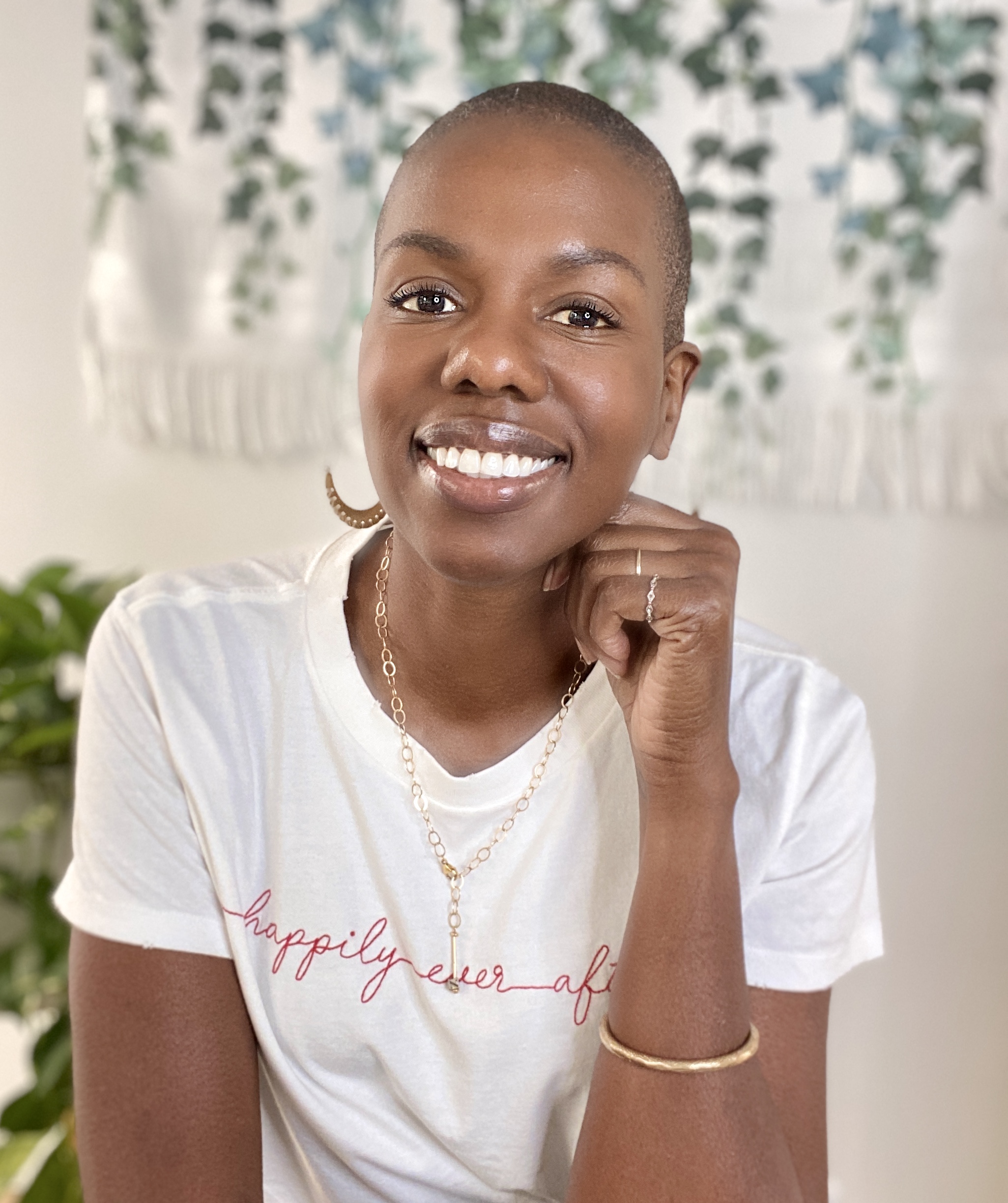
Source: NA / na
The damage is spreading
Love MadameNoire? Get more! Join the MadameNoire Newsletter
We care about your data. See our privacy policy.
Hogi says it’s time to consider ending a relationship, “If your relationship is causing heaviness and darkness in your life [so much so] that it’s starting to emotionally impact you in other parts of your life, like say, when you go to work, you’re consumed with worry or anxiety about your relationship, or it’s difficult for you to be present in your relationships with other people because of any stress or worry or shame you’re feeling about your romantic relationship.”
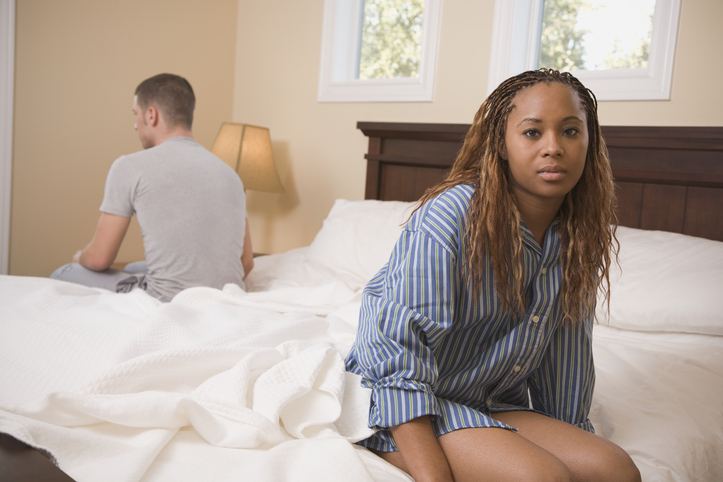
Source: Patrick Lane / Getty
Feeling safe is key
Hogi urges clients to look for certain base levels of safety in their relationship. “In order to have a healthy relationship, you need to have a foundation of emotional and physical safety. Physical safety might be more self-explanatory. Emotional safety means that you have the ability to express your emotions to your partner without judgment. Without gas-lighting. Without them minimizing those emotions or telling you that you are wrong for feeling the way that you are feeling. That is a very key element of a healthy relationship.”
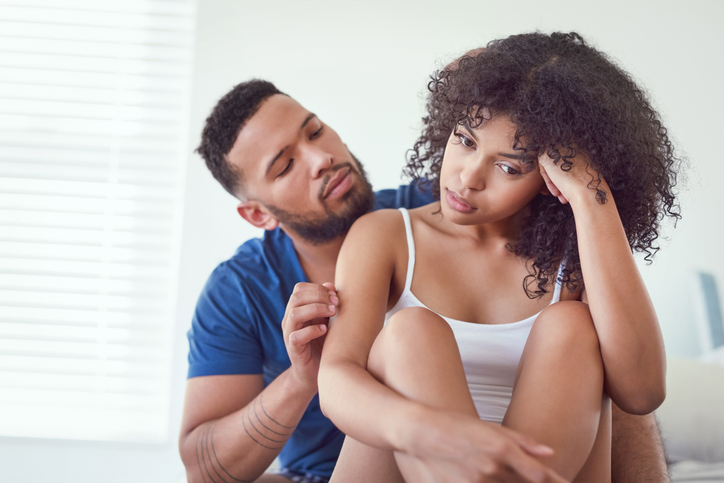
Source: LaylaBird / Getty
Ultimately, it’s up to you
Hogi emphasizes that she doesn’t tell clients to break up with somebody. However, she does say, “If you’re in a place where you are feeling that you don’t have that emotional safety or you’re realizing that you never had that emotional safety, then it’s up to you to decide [to end it], but it’s in my opinion that that is not a relationship that is going to be healthy for you in the long-term.”
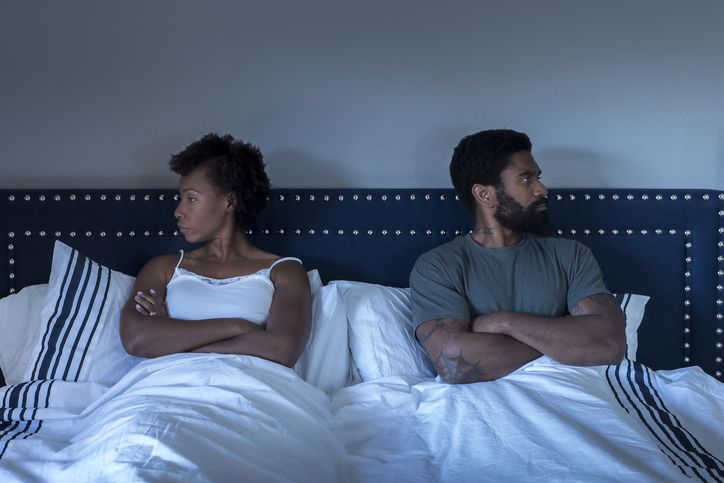
Source: KOLOstock / Getty
Are these two types of intimacy dwindling?
Emotional and physical intimacy are important to a healthy relationship, says Hogi. But she says this type of intimacy, “Requires vulnerability. It requires an ability to allow yourself to be truly seen for who you are by another person. And also, for you to have that ability to see your partner for who they are. If you’re in a relationship where you do not have that level of intimacy, then it might be worth seeing if you can get there in that relationship.”
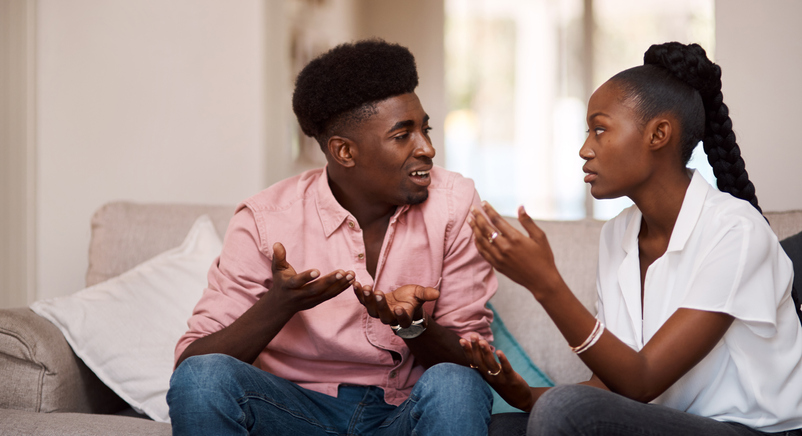
Source: PeopleImages / Getty
It’s hard to change a trajectory
While, again, Hogi does not tell clients to end relationships, and leaves that decision up to them, she does say that it’s very difficult to change patterns that are already in motion in a relationship. “Once you’re already in a relationship and you’ve already come together with a certain dynamic and a certain lack of emotional intimacy, it becomes very hard to make that transition.”
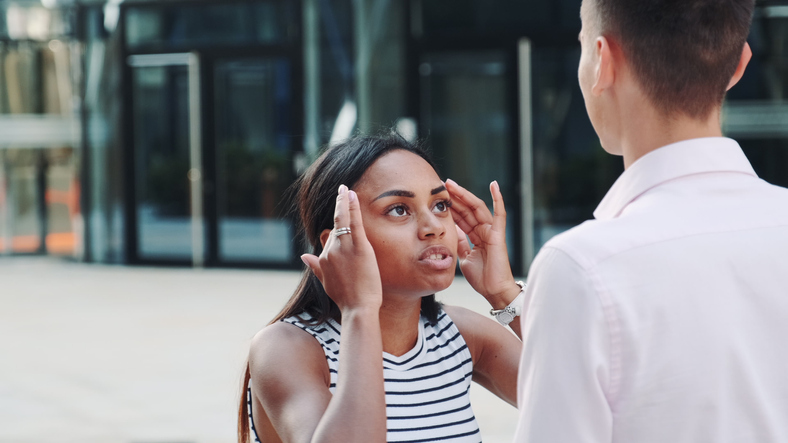
Source: Maksym Panchuk / EyeEm / Getty
You must both do the work to see change
“It’s not impossible,” Hogi says of improving intimacy in a relationship. But, both parties must be committed to that change. “If you’re in a relationship where you’re both able to support each other through that journey, that’s fantastic. But if you feel you’re the only person on that journey and your partner is not meeting you halfway and not doing their own work, that is a sign that that relationship will not be healthy in the long term.”

Source: Westend61 / Getty
When dignity goes out the door
“Another element [to a healthy relationship] is respect,” says Hogi. “[That means] treating each other with dignity even when you disagree. So if you are in a relationship where disagreement leads to you being shamed, to you being put down…if it leads to…name calling. If you are retaliating against each other. Those are all signs again that this is not a healthy relationship.”
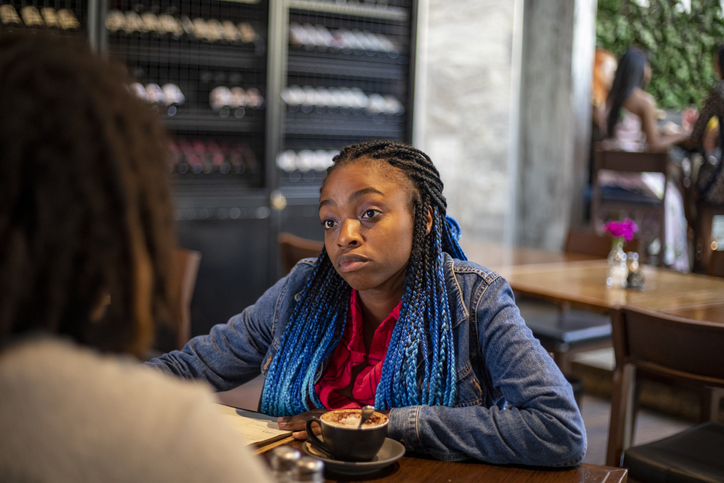
Source: SolStock / Getty
Respect is there, or it isn’t
“Intimacy is something that you can work on,” says Hogi to couples struggling with physical or emotional intimacy. As for those who don’t treat each other with respect? “If you don’t have that mutual respect and you find yourself in a place where you feel that you’re being treated with less than dignity from your partner, in my mind, that’s a deal-breaker,” says Hogi.
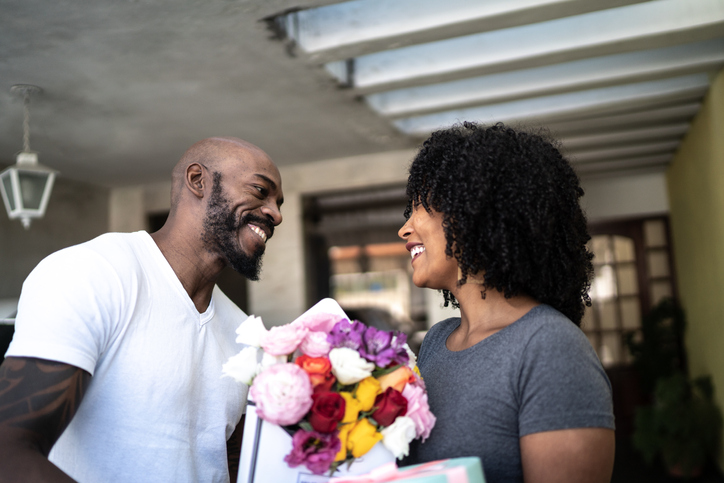
Source: FG Trade / Getty
“But he treated me like a queen at first”
It’s rare someone enters a relationship where there is clear disrespect from the beginning. Often, the disrespectful party starts out by being respectful and complimentary. Hogi says this is common. “You might have a honeymoon phase of a relationship when everyone is on their best behavior. You might be with someone who was sweet as pie…they might have been very attentive…they might have told you you were the greatest thing since sliced bread at the beginning of the relationship.”
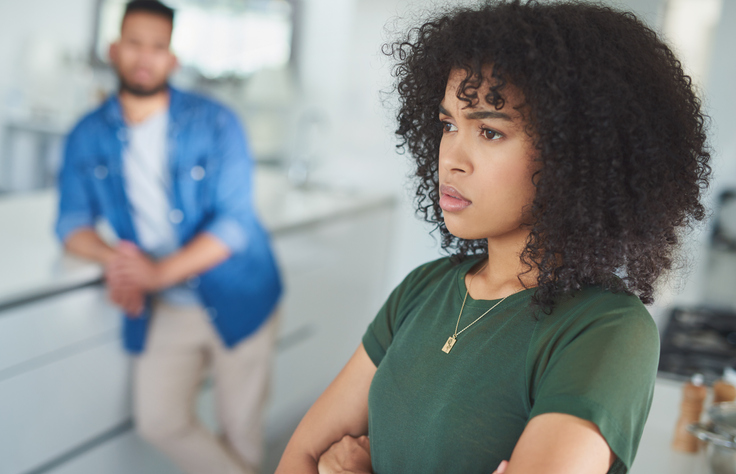
Source: LaylaBird / Getty
When they flip the script
It can be hard to accept when someone switches from treating you with respect to treating you like you don’t deserve respect. But it happens. “Once you go deeper into it [the relationship], that shifts. And now you find yourself in this place where you’re not being treated with respect. That is a big, big red flag. It’s up to you to see it for what it is and end that relationship,” says Hogi.
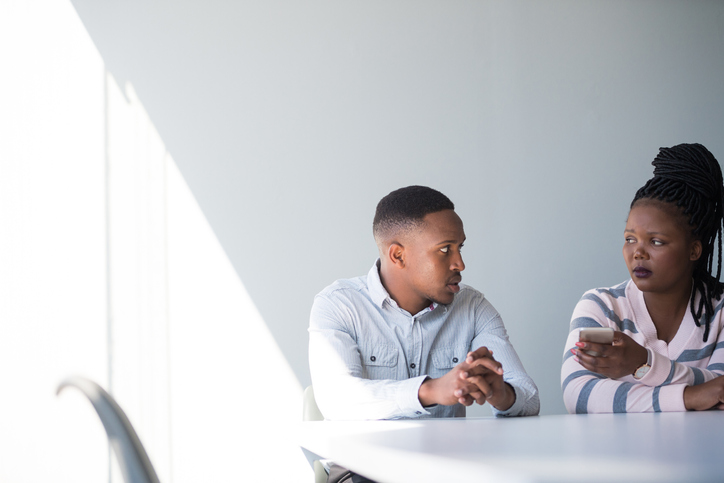
Source: stockstudioX / Getty
The commitment isn’t a match
“Another foundational element of a healthy relationship is commitment,” says Hogi, stating it’s a problem if “You are in a relationship where you do not feel that you and your partner have the same level of commitment to the relationship. That includes loyalty, in terms of not cheating – I think that’s more obvious. But it also includes a commitment to taking responsibility for the fact that you are a co-creator in that relationship.”

Source: Delmaine Donson / Getty
What does it mean to be a co-creator?
We asked Hogi to expand on what it means to be a co-creator of a relationship. She said that “Relationships, no matter how wonderful they are or no matter how dysfunctional they are…we are co-creating those relationships. So we have to take responsibility for our part in that.” You may be asking, “Well what if I was the greatest partner and my partner caused all the problems?” Hogi has an answer for that in our next slide.
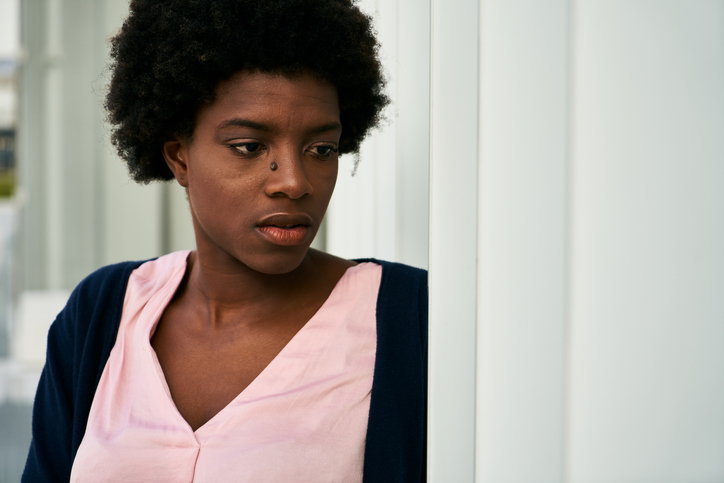
Source: Matteo Caremoli / EyeEm / Getty
You may not cause the trouble, but you’re there for it
Hogi says that no matter who did what, each person in the relationship is, in a way, accountable for the dysfunction. And you have to face that, “Even if it means taking responsibility for the fact that you have not loved yourself enough to have clear boundaries. Or you haven’t loved yourself enough to hold people to clear standards of treating you with that respect and that emotional safety. [It’s about] always returning to what your part is in the relationship. In order for that relationship to last, it’s going to take both of you.”
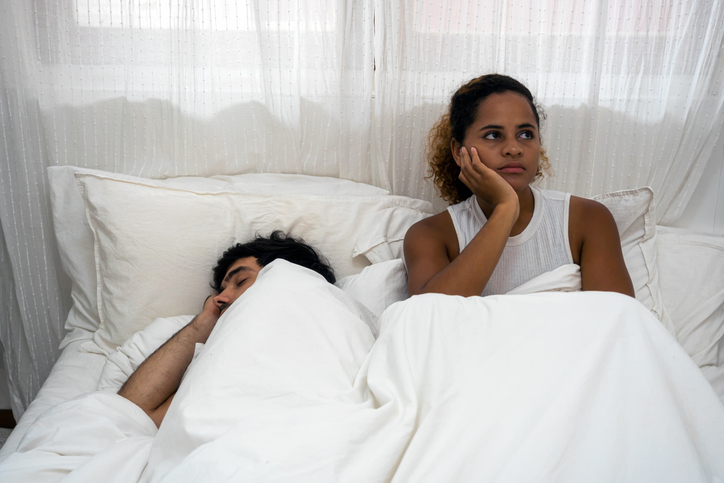
Source: Kmatta / Getty
You’ve lost the joy
The last foundational element to a healthy relationship Hogi brought up is joy. “Joy is different than happiness and pleasure. Happiness and pleasure are fleeting. An ice cream sandwich might make you happy but it’s not going to bring you joy. Joy is something deeper. It [a healthy relationship] requires both of you to have an ability to experience that deeper joy. If you do not have that ability within your relationship, then, again, in my opinion, that is not going to be a healthy or fulfilling relationship for you in the long term.”
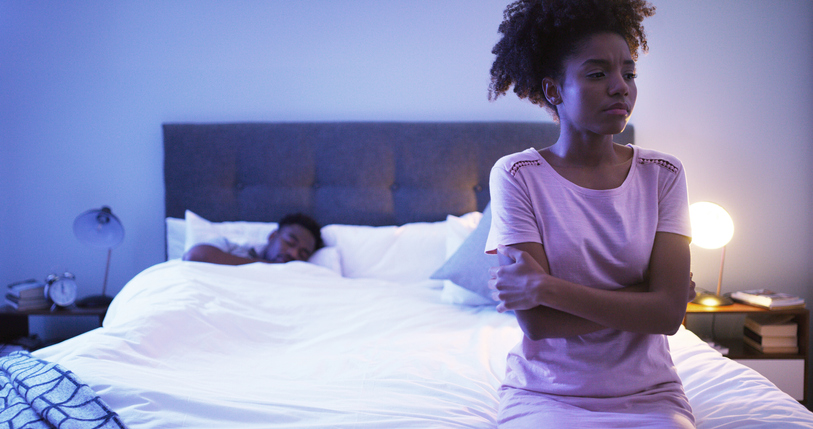
Source: PeopleImages / Getty
Joy is the backdrop. There will be lapses.
Does this mean that, if you don’t feel joy for a few days, you should leave a relationship? “So sometimes there are obviously times of crisis. Times of challenge. So this doesn’t mean ‘Oh if we’re not joyfully skipping down the street holding each other’s hand every day that means my relationship needs to end.’ That’s not what I’m talking about,” says Hogi. “I’m talking about having a mutual ability to regularly return to that connection of joy and that place of joy.” If you’ve lost the ability to return to that, it may be a sign the relationship needs to end.
-

My Husband And I Attempted To Have A Creative Date Night At Home -Without A Babysitter - Here's How It Went
-

She Tried It: Ivy Park Drip 2 and 2.2 Black Pack
-

Vontélle Eyewear Founders Score History-Making Licensing Deal With Paramount
-

Our Health, Our Power: Debunking Myths And Taking Charge This Open Enrollment



